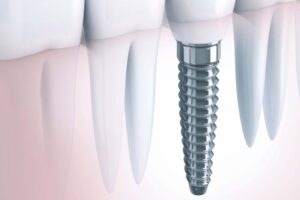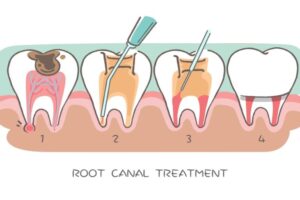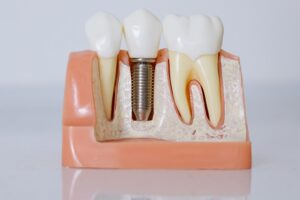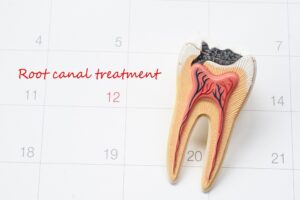Maintaining a lifetime healthy smile is the foundation of oral health. Establishing daily dental care practices is crucial to keeping your teeth and gums at their best. Proper dental care habits can significantly impact your ability to prevent cavities, eliminate bad breath, and maintain a confident smile.
At Dental Panache, we understand the importance of preventive care and have compiled a list of 10 ways to take care of your teeth. From choosing the right toothbrush to prioritizing hydration, let’s dive into daily routines that ensure good oral health and a smile you’ll love to show off!
The Importance of a Morning Oral Hygiene Routine
An oral hygiene regimen on the first day of the morning lays the foundation for staying healthy. Morning care is about brushing your teeth and preparing your mouth for the day.
Steps for a Winning Morning Routine:
- Brush your teeth for 2 minutes with fluoride toothpaste, covering your whole mouth.
- Floss to remove plaque and debris stuck between teeth.
- Finish with a gentle rinse using an alcohol-free mouthwash.
Why does this matter? Bacteria accumulate in your mouth overnight, and neglecting a morning routine can lead to bad breath and plaque buildup. You’re taking a big leap toward long-term dental health by prioritizing this step every morning.
How to Choose the Right Toothbrush and Toothpaste
Choosing the right tools is essential for maintaining good oral health. Given the availability, here’s how to pick a winner:
Toothbrush Tips:
- Choose a soft-bristled brush to prevent scratching your enamel.
- Select a size that fits your mouth comfortably, providing the best coverage.
- Replace your toothbrush every 3 months or sooner when the bristles are frayed.
Toothpaste Tips:
- Look for fluoride as an active ingredient—it’s essential for cavity prevention.
- Think about toothpaste based on your needs, such as sensitivities, whitening, or gum care.
- When it comes to daily dental care habits, your tools matter. An electric toothbrush can also revolutionize the process, providing better plaque removal than conventional manual brushing.
Benefits of Flossing Every Day
It’s non-negotiable if you’re serious about achieving good oral health.
Why Flossing Matters:
- It cleans plaque and food that brushing doesn’t remove.
- It prevents gum disease and reduces inflammation.
- It helps fight bad breath by removing trapped debris.
Flossing is a component of routine oral health care. Whether you choose traditional or water flossers, the most important thing is consistency.
Rinsing with Mouthwash: Do’s and Don’ts
Mouthwash is a supplement and a weapon in your oral hygiene toolbox. And, of course, you have to know how to operate it correctly.
Do’s:
- Use mouthwash after brushing and flossing for extra protection.
- Swish for a minimum of 30 seconds so that it penetrates the entirety of the mouth.
- Choose alcohol-free mouthwashes to prevent dryness.
Dont’s:
- Mouthwash should not be used in place of brushing or flossing.
- Avoid overuse—once or twice a day is sufficient. Adding mouthwash to your daily routine means providing an added layer of protection against cavities and gum diseases.
How Diet Impacts Oral Health
Your diet contributes more to oral health than you may realize. What you eat and drink can strengthen your teeth or set the stage for decay.
Foods That Help:
- Crunchy vegetables and fruits such as apples and carrots, all as natural toothbrushes.
- Dairy products such as cheese and yogurt contain high amounts of calcium and phosphates.
- Nuts and seeds have the effect of an increase in salivation, enabling the washing away of harmful bacteria.
Foods to Limit:
- Sugary snacks and beverages can lead to cavities.
- Acidic (e.g., citrus, soda) foods erode enamel long term.
Regular Dental Checkups: A Must-Have Habit
You can’t achieve optimal oral health without professional care. Routine dental examinations play a vital role in the early detection of and maintaining a healthy smile.
Why Checkups Matter:
- Dentists can see early manifestations of cavities, gum disease, etc.
- Professional cleanings remove stubborn tartar that brushing and flossing can’t tackle.
- Routine exams save you time, money, and discomfort in the long run.
Maintain a regular habit of visiting the dentist every year, etc. At Dental Panache, we’re here to help you stay on top of your oral care needs.
The Role of Hydration in Maintaining Healthy Teeth
Didn’t you know hydration is one of the most straightforward oral hygiene practices to follow daily? Water is an essential factor in oral health.
How Hydration Helps:
- Flushes away food particles and bacteria.
- It keeps your mouth moist, reducing the risk of bad breath.
- Promotes saliva production, which neutralizes harmful acids.
- Keep water by your side all day; your teeth will love you!
Why You Should Avoid Sugary Snacks
Sugary snacks pose a significant threat to maintaining good oral health. They are “food” for harmful bacteria in your mouth, generating acid to erode your enamel.
Smart Snacking Tips:
- Replace candies and cookies with fresh fruits or nuts.
- Limit how often you indulge—frequency matters more than quantity.
- Rinse your mouth with water after consuming sugary treats.
When building your list of daily dental care habits, cutting back on sugar and acidic drinks should be a top priority.
Proper Brushing Techniques to Protect Your Enamel
Brushing doesn’t look complicated, yet most people do it wrong. A lousy technique can damage enamel and gums in the long term.
Best Practices for Brushing:
- Use gentle, circular motions rather than harsh back-and-forth strokes.
- Hold your toothbrush at a 45-degree angle to clean along the gumline.
And, by the way, don’t neglect to brush your tongue—that’s an area teeming with bacteria.
Follow these tips to ensure you’re brushing effectively and protecting your enamel.
Nighttime Oral Care Tips
Your oral care regimen should not be finished at night. Nighttime habits are just as crucial for good oral health.
Nighttime Routine Checklist:
- Brush and floss before bedtime to remove buildup from the day.
- Do not snack at night to prevent plaque formation during the night.
- Consider using a fluoride rinse overnight for extra protection.
A couple of minutes of extra work/effort right before bed can help avoid cavities and gum problems in the future.
Conclusion
Good oral health starts with consistency. You invest in a healthier, brighter smile by incorporating these top 10 daily dental care habits into your routine. Dental Panache is dedicated to building your oral health journey.
Remember, just one small step today can bring about significant change in the future. Whether you improve your brushing technique, drink more water, or commit to regular dental checkups, every step counts.
Here’s to healthier teeth, fresher breath, and a confident smile!
FAQs
Brushing your teeth at least twice daily, once in the morning and once at night, is recommended. Brushing after meals is also beneficial.
Yes, flossing is necessary! Brushing cleans the surface of teeth, but flossing removes plaque and food from between teeth where your toothbrush cannot go.
Choose a toothbrush with soft bristles to avoid damaging your enamel and gums. Electric toothbrushes are also highly effective in removing plaque.
Find toothpaste with fluoride since it can help make teeth more resistant to erosion and cavity formation. When the purpose is sensitivity or whitening, select the toothpaste intended for that purpose.
Mouthwash is a valuable adjunct to brushing and flossing but not a replacement. It provides added protection by acting as a virucide against bacteria, providing breath freshness, and having penetration properties that your toothbrush cannot approach.
Don’t eat or drink high-sugar foods and beverages, as this fuels bacteria that make acid and leads to tooth decay. Acidic food and drinks (e.g., citrus fruits and soda) should be avoided and consumed in minimal amounts to protect the enamel.
You should see your dentist at least twice yearly for regular checkups and cleanings. If you have specific dental problems, your dentist will suggest more frequent dental visits.
Yes, water is crucial for oral health! It washes off food debris, prevents dry mouth, and neutralizes the insidious acidic substances in the oral cavity.
Please use slow, circular strokes and keep your brush at a 45-degree angle to your gumline. Do not scrub too vigorously because it can damage surface enamel and cause pain in the gums.
Good nightly hygiene is essential. Do not eat large amounts of food after brushing; for added protection, use a fluoride rinse before sleep.







